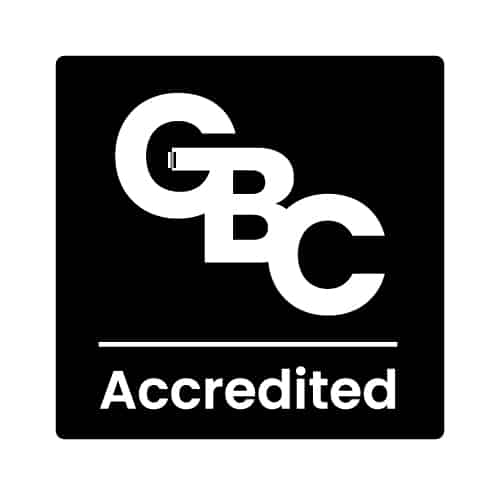Starting a business? – Wonderful! Becoming a small business owner is a huge and courageous step. It’s rewarding and definitely a journey, but it’s also a challenge with a unique set of bumps in the road which you’ll have to navigate, no matter what your particular industry or niche. The aim of this blog is to highlight 10 of the most common small business mistakes that I see, so that you can hit the ground running and be better equipped to build a sustainable, resilient business.
So, here are 10 common small business mistakes that I’ve seen business owners make, and I talk from experience here, as many of them I’ve learned the hard way!
Underestimating Time Involved
This is a biggie and one that I think most business owners learn through experience! If you’re charging per project, for example, you must have a clear idea of exactly how long that project will take you to complete…and then add in some extra time for contingency.
The best way to estimate cost is to time yourself completing the task and then use that information to inform your rate. Once you have this down, you’ll be able to make an informed estimate on similar projects in the future.
Overpromising or Underdelivering
This is one of the most destructive small business mistakes that I see and one that could prove fatal. You should never be tempted to lie or over-emphasise what your products and services could do for a potential client.
Remember, clarity is kind to your potential customer and to you! It is far better to be open and honest in what your potential customer can expect from you. Not only does this create strong boundaries, but it saves you having to deal with disappointed customers should you fail to delver on time, because you took on too much or underestimated the work involved.
Listening to Your Inner Critic
In my blog,”3 Ways to Stand Up to Your Inner Critic” , I highlight the ways that your annoying inner voice stops you from stepping out of your comfort zone and achieving growth. Left unchecked, that pattern of negative self-talk can control you and define your actions to such an extent that it blights your move to self-employment or severely limits you when you make the move.
Thankfully, there are ways that you can quieten your inner critic and learn to master it, so those inner voices become an annoyance that you can deal with rather than the voice of doom.
Not Understanding Your Target Market
Make sure that before you launch your business, you’ve done your research on the need for your products/services. One of the most common small business mistakes that I see too frequently is where someone has a hobby and thinks they can grow a sustainable business out of it.
Don’t get me wrong, there are many successful businesses that have grown from a situation like this, but it’s imperative that you do your homework and understand your target market AND your target audience. What sets you apart from anyone else offering the same products/services and what will make someone buy from you rather than your competitor.
Never Switching Off
We’ve all seen those people on social media who wear “busyness” like a medal. But avoid this most basic of small business mistakes by setting good practices from the start! “Busyness” does not equal productivity. Feeling guilty because you’ve taken some time away from work or aren’t working every hour is a form of low-level anxiety and is best dealt with early on in your business journey.
Instead, reframe any “downtime” as a necessary part of the business process. It’s vital for the longevity of your business that you have time out and avoid the burnout that trying to work every hour will bring. You’ll often find that the time when you allow your brain to switch off is the time when you get some of your best, most creative ideas, so embrace the downtime as an important part of your business strategy.
Launching Too Quickly
There are some mistakes that can be avoided by taking your time to ensure that you have everything in place to provide the best foundations for your business. My advice here is to take time to research things like bank accounts, insurance and the like so that you have all your startup ducks in a row.
Ignoring these foundations and leaving them until you start getting clients can be a costly mistake. Here is a handy FREE checklist to ensure you have everything in place for your business.
Failing To Have Systems in Place
Even if you’re a one-man band, having appropriate systems in place is the only way to create a scalable business. With effective systems, you’ll get things done quicker and more efficiently, with predictable and stable results, rather than the constant “reinventing the wheel” of having no systems and the resulting variance and instability which that will bring.
As your business grows, so you’ll be able to tweak and improve your processes to grow with your business. Basic examples of processes include billing, payroll, HR, operating and maintaining equipment. Save yourself some time and headaches by getting these in place at the beginning and tweaking and streamlining as your business grows.
Doing Everything Yourself
We all know the saying, “No man is an island” and that has never been truer than when starting or running a business. But, although doing everything in your business saves time, it also follows that, as your business grows, so you’ll have less and less time to focus on the tasks that only you can do, whilst you struggle to keep up with the bookkeeping, general admin or marketing of your business.
When you’re hard-pressed to get everything done “in” and “on” your business, it makes sense to bring in some expert help.
For a small business owner, the benefits of outsourcing those tasks that you are not expert at to another freelancer who is are many.
Not Getting Paid On Time
Chasing invoices for payment is time-consuming and frustrating in equal measure. Whilst you largely can’t control when suppliers and customers will pay their bills, not having processes in place to generate and send invoices in a timely fashion is a costly small business mistake.
Depending upon your accounting software of choice, you may also be able to automate the sending of reminders once invoices go past their due date. In addition, have a series of template emails you can quickly fire off to remind suppliers and customers that their payment is overdue.
No Future Plan
In fact, one of the most common small business mistakes is failing to plan at all. A business plan doesn’t have to be complex, it simply needs to specify your operation costs, what you intend to offer to the marketplace, how much you envisage selling, who your target market is and what sets you apart, your “USP”.
But, more than this, you also need to have a vision of your future business – that is, what it will look like in , say, 1 year, 3 years and 5 years’ time. Without this and having “success markers” along the way, it is impossible to know whether you are any closer to reaching your goals. You can download a FREE business vision workbook to aid you here
Whilst your business is your “baby”, it’s important to realise that no successful business is built by one person alone. If you want to avoid these and more costly small business mistakes, you’ll need to surround yourself with a team, including a business coach or mentor. They will be able to hep you stay accountable, to remain focused on the areas necessary to grow your business and to navigate the bumps in your business journey to ensure you grow that successful business and enjoy the process!
If you’re ready to invest in your business growth and to discover for yourself how I can help you grow a sustainable business that you’ll love, then follow the link to book your call today.








